Aisha is nine years old. She is a bright, bubbly little girl who was born in Sydney to Australian parents.
Sitting next to her four-year-old sister, in jeans and with neat plaits in her hair, it is hard to comprehend the five-year age difference. Aisha’s frame is tiny. She struggles to eat due to problems with her teeth, and her nutrition is compromised. There is no chance of getting the problems fixed in al-Roj camp, where she is detained along with her mother, sister and six-year-old brother.
Her mother is Mariam Dabboussy, who went to Syria with her husband, Khaled Zahab, when Aisha was 18 months old, and has been the public face of the fight to repatriate the group of Australian women and their children held without charge in the prison camps set up to detain the families of Islamic State in northeast Syria.
“I’m 31,’’ Ms Dabboussy said.
“I think from memory I was 23 or 24 (when I left Australia). It’s been for what feels like forever.’’

Aisha has spent a third of her life in prison camps. Her siblings, whom their mother has chosen not to publicly identify, were born in Syria and barely remember a life outside the camps.
“Every day is a day lost,’’ Ms Dabboussy said of the time the families were detained.
The Syria Question

‘Give them a childhood’: mum
Pressure is mounting on the Albanese government to deal with the problem it inherited from the Coalition and repatriate Australian citizens from Syria.
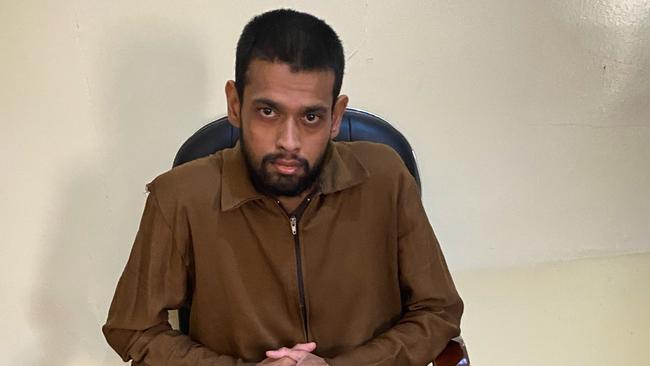
‘I didn’t do anything wrong. I want to come back’
An Australian member of Islamic State locked up in a Syrian prison is begging for forgiveness from his parents and wants to come home, saying he poses no threat.

ISIS families stranded by domestic laws
Government is not legally required to bring ISIS families home, but should do so to meet international obligations, law expert says
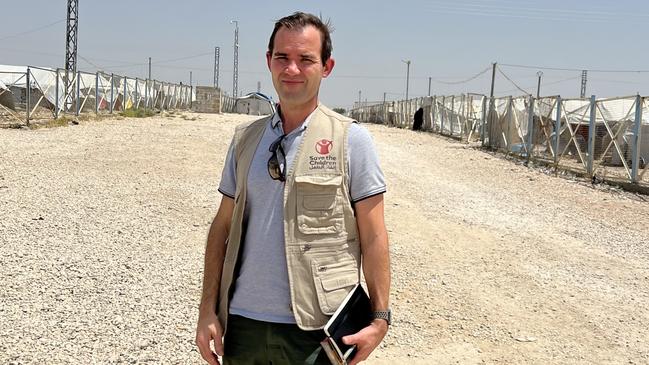
Aid chief proves Syria trip can be done
For years, the previous government said it was too dangerous to extract women and children. Save the Children’s Australian chief Mat Tinkler set out to dismiss that claim.
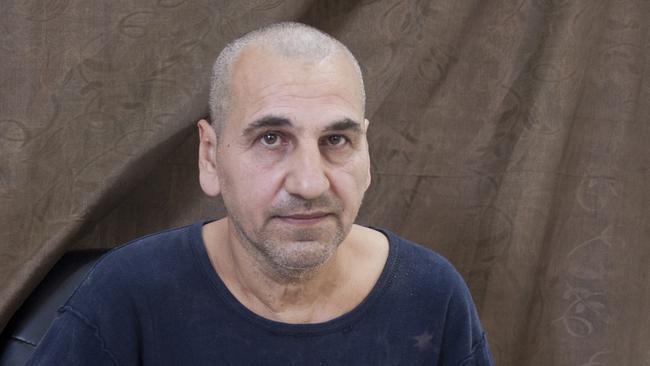
Roll call of the terror-linked prisoners
Australian men are among ISIS-linked prisoners in Syria.

Mystery over death of jailed Aussie teen
Officials and family seek answers over how Sydney teen Yusuf Zahab lost his life in the Syrian prison after an Islamic State attempted jailbreak.

Australian law does not require we bring Syria families home
Rather than safeguarding their rights, our legal system arms our government with extraordinary powers to prevent citizens from returning.
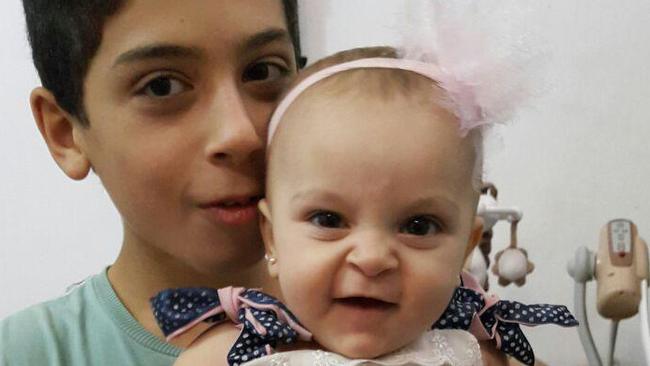
Aussie teen in Syrian prison feared killed
A 17-year-old Australian boy detained for three years without charge in a men’s prison in Syria is believed to have been killed after Islamic State attacked the jail trying to free their fighters.

Jihadi brides’ return ‘risky but ethical’
Repatriating Islamic State families undeniably brings security and legal challenges, but should be done for ethical and national security reasons, a leading counter-terrorism expert says.

Two of the saddest little girls you’ll meet
For the last seven years, Assya and Maysa Assaad have lived either under the rule of IS, or locked in a camp in the desert. All they want to do is go to school.

‘I go to sleep fearing they will be taken from me’
Mariam Raad wants stability and an education for her children, and a job for herself. But as a widow with four children living in a prison camp, her future is precarious.

Repatriated kids live quietly in community
The families of two dead IS fighters repatriated from Syria by the Australian government have been living in the community for several years.
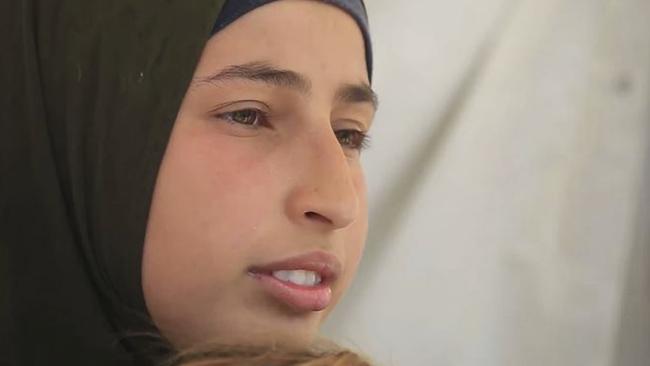
Childhood lost: ‘Sometimes I feel like time has stopped’
Shayma Assaad had barely finished Year Nine in Sydney when she was taken to Syria, married off and impregnated. Hers is one of the most disturbing stories of all the Australian women trapped in al-Roj camp.
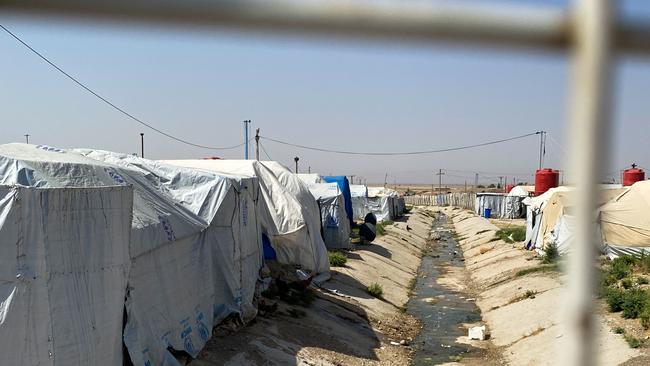
No exit and no hope in ‘torture’ camps
‘This is not a holiday camp, it’s not a refugee camp, it’s not a place where the basic needs of human beings are met in any way.’
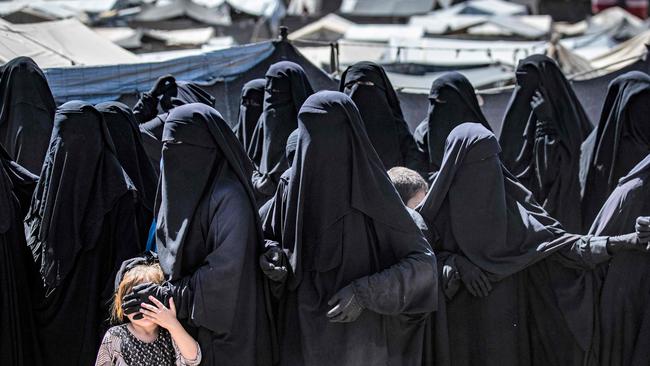
Time to decide what becomes of those left behind
There’s little sympathy in Australia for fellow citizens trapped in Syrian camps. Instead, there’s a dangerous ignorance of the truth.
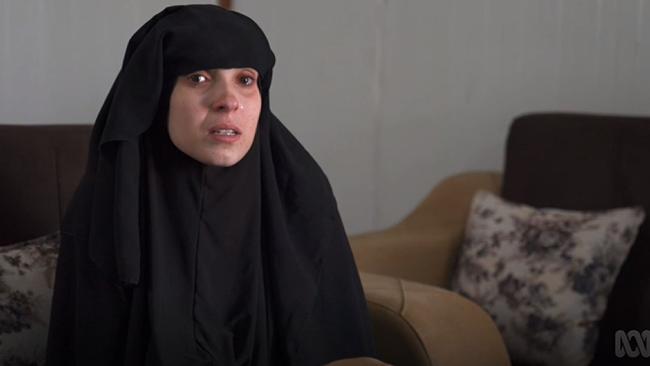
Jail swap sent Aussie mum, baby back to Islamic State
Sydney woman Nesrine Zahab has revealed how she fled ISIS while pregnant, only to be returned to the extremist group with her newborn baby in a prisoner swap.
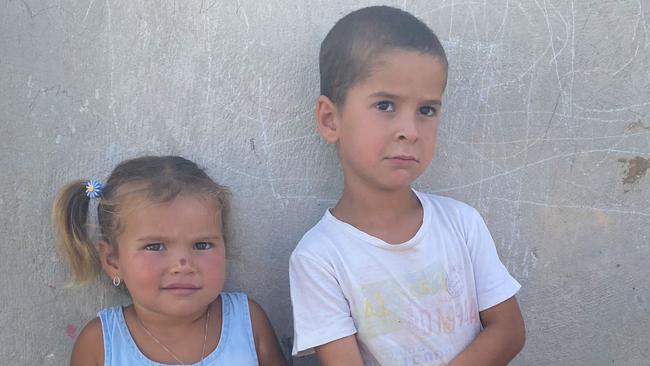
Islamic fate: the lost heirs of Aussie terror
Pressure is mounting on the PM to repatriate Australian women and children held in camps for Islamic State families in Syria, amid fears their indefinite detention is leading to a national security disaster.
She said it would have been preferable for the Australian government to bring the families back years ago, while the children were young, and that all the women had voluntarily offered to submit to terrorism control orders, to ensure the Australian public felt comfortable they posed no threat.
“The kids didn’t even need to understand what was happening. It’s been three years and some of them have grown up and they’re asking questions they didn’t need to ask,’’ she said.
“It would have just been a lot simpler reintegration for the kids.
“The adrenalin now, it hasn’t ended. We are constantly feeling threatened by things around us.
“This camp was not built to house people for two years. The electrical wires are indoor wires. They’re not meant to be outside.
“The Kurdish administration are under pressure themselves and they’re asking and it’s falling on deaf ears. They’re asking for help from the countries to take their people and it’s just falling on deaf ears.’’
Seeking a restart
Ms Dabboussy and her three children are among 16 Australian women and 42 children currently detained in al-Roj camp. They have been there for two years, after being moved from al-Hol, the teeming detention centre near the city of Hasakah, which, at its peak, held 77,000 women and children.
The majority of the detainees in al-Hol and al-Roj are families who were taken into custody by the Kurdish Syrian Democratic Forces following the fall of Islamic State’s final holdout at Baghouz, in March 2019.
The women and children, and around a dozen Australian men held in prisons in Hasakah, have now been detained for three years without charge.
A 17-year-old Sydney boy, Yusuf Zahab, who was taken into custody at the age of just 14, died this year in prison.
Pressure is mounting on the Albanese government to deal with the problem it inherited from the Morrison government, and repatriate its citizens.
Ms Dabboussy, who was forced to remarry twice after Khaled Zahab was killed in late 2015, has spoken of her shock and disgust at the actions of her brother-in-law, the infamous Islamic State recruiter Muhammad Zahab, who, she says, tricked her late husband and other relatives into taking her and other family members into Syria.
With her father, Kamalle Dabboussy, she has advocated for the women to be returned, and said the entire group of about 60 women and children was desperate to be repatriated.
She said the group posed no threat to Australians, and just wanted to restart lives and provide an education and safe childhood for the children.
“I know that the girls have agreed to control orders and that was them reaching out their hands to ensure that people felt comfortable for their safety, and for themselves,’’ she said.
“We are actually trying really hard to get out of here. That’s an indication in itself, for the people involved in our cases, to know that we are willing to do what’s needed (to get home).’’
Ms Dabboussy said the youngest Australian child in the camp was three and the oldest was 16.
Ready to work
Prior to marrying into the Zahab family, Ms Dabboussy was not a particularly religious woman – she didn’t wear a hijab and she worked in migrant services in Sydney.
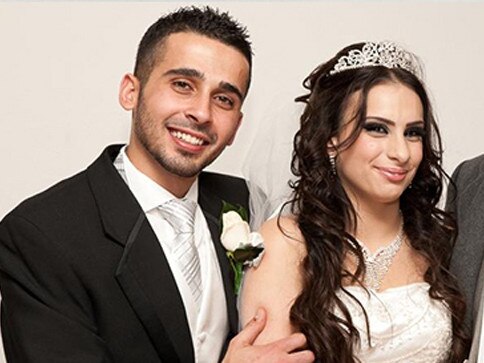
She hopes one day to be able to re-enter the workforce in Australia, probably working with refugees and migrants.
“My short-term (aim) is I really need to make up for lost time for my kids,’’ she said.
“I think as Australians we have high expectation of what we think our kids are able to do. So we have to work for the kids, work on getting them settled, and from there, wherever life takes us.
“(I) definitely can’t do nothing at all, I have to do something. I’m looking forward to getting back into something meaningful.
“What I would like to do is maybe see what community programs are available.
“I worked with migrants and refugees before, so now that I’ve been here I really, really understand what kind of life they might have seen before.
“So if I can use those skills in the field, understanding what they faced, where they came from before.
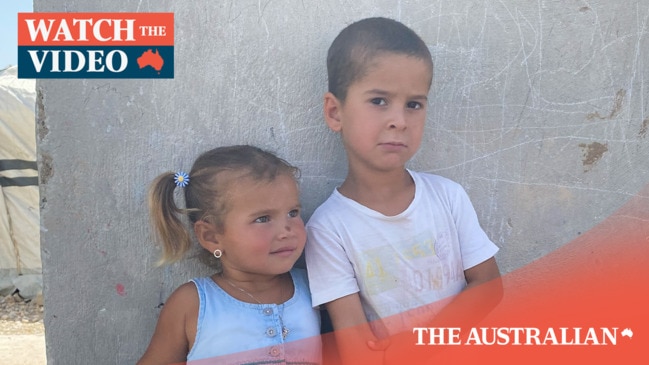
“Good work experience, good placement! It’s a nightmare but a good placement,’’ she joked about her three years detained in the camps.
‘Rips me up inside’
Ms Dabboussy is cognisant of the challenges her children will face in Australia with their education.
“The older ones need a little bit of help. But we literally have to use cardboard, pieces of cardboard, ripping up boxes because we don’t have access to pens and paper. Just literally utilising whatever we can. Reading off the TV if there’s teletext, trying to pause that whatever it is,’’ she said.
She is saddened that her children missed out on their early primary school years.
“One of the things that rips me up inside is primary school is meant to be the best time of your life.
“Doesn’t matter if you’ve come from a refugee family, if you’re rich, if you’re poor, if your parents are divorced or together.
“It doesn’t matter where you’ve come from, you get to leave everything behind you and you go to school and it’s literally the best memories you have.
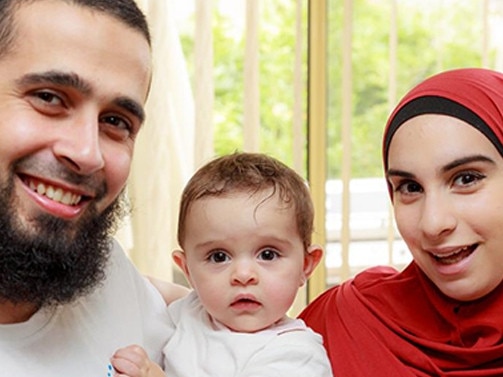
“Our kids have never had the chance to experience what arts and crafts is. Or run through a field of grass and played a game of sport on a field of grass. They don’t even know what it’s like to feel the sand between their toes.
“My son watching TV sometimes will see the jungle or he’ll see a beach and he gets really frustrated and he asks ‘Mum, is the sea real? Is it actually real or make-believe like in the movies that we’re watching?’.You die a little bit inside and I explain to him this is actually real and he gets choked up and says ‘Why can’t I go there?’. He’s very interested in nature, he wants to go, he sees BBC Earth-type shows and he wants to go and see a jungle.
“It’s really … you die a little inside, every time. Every time.’’
Ms Dabboussy said the long period of detention had proven impossible for some families, who were no longer able to remit money to the camps to provide income support for the women and children inside.
“It’s been so long, so long.’’
She made the point that the Australians were not refugees, and the UN should not have to support them and the others detained in the camps.
“With the other crises that are happening in the world, they’re funding these camps of people who shouldn’t really be here. We don’t need to be. We are not refugees,’’ she said.
“We are taking the rights of other people.
“There’s famines all across the world.’’
Keeping a low profile
Each compound in al-Roj camp has 48 tents. Ten of the tents in one row of the new annex are filled by Australians.
The camp is of a reasonable standard compared to some refugee camps, although water is scarce, packs of aggressive stray dogs roam the camp, and its location in the middle of the oilfields fills the air with pollution and black dust. A working derrick even pumps oil in the middle of the camp. The camp has heavy security and is safe.
By comparison, while the Syrian Democratic Forces controlled the perimeter of al-Hol camp, Islamic State ruled its interior, and the women there were required to wear black hijabs and face-covering niqabs. Such coverings are banned at al-Roj, yet all the Australian women still wear headscarves and cover their faces with surgical masks.
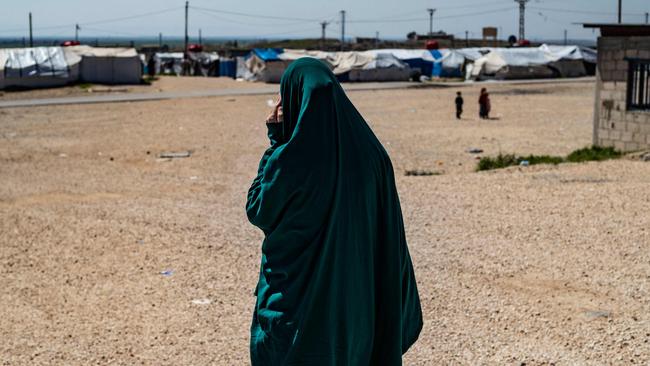
“I have a saying, when in Rome, do what the people are doing. We just like to keep a low profile. Like a uniform,’’ Ms Dabboussy said.
She said the children occasionally went to the school on site, but mainly to learn the discipline of sitting in class and formal lessons. Most of their teaching happens in English in their tents.
Ms Dabboussy said the children’s best chance of an education was in Australia.
“The thing that strikes a chord is primary school … just let them be kids, give them a chance to have a childhood. Let them be kids.’’

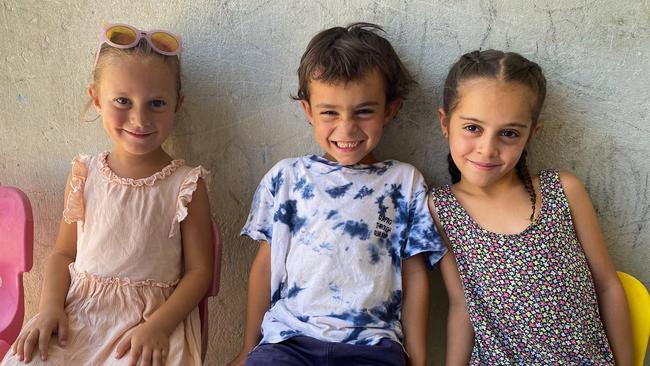
More Coverage
Add your comment to this story
To join the conversation, please log in. Don't have an account? Register
Join the conversation, you are commenting as Logout